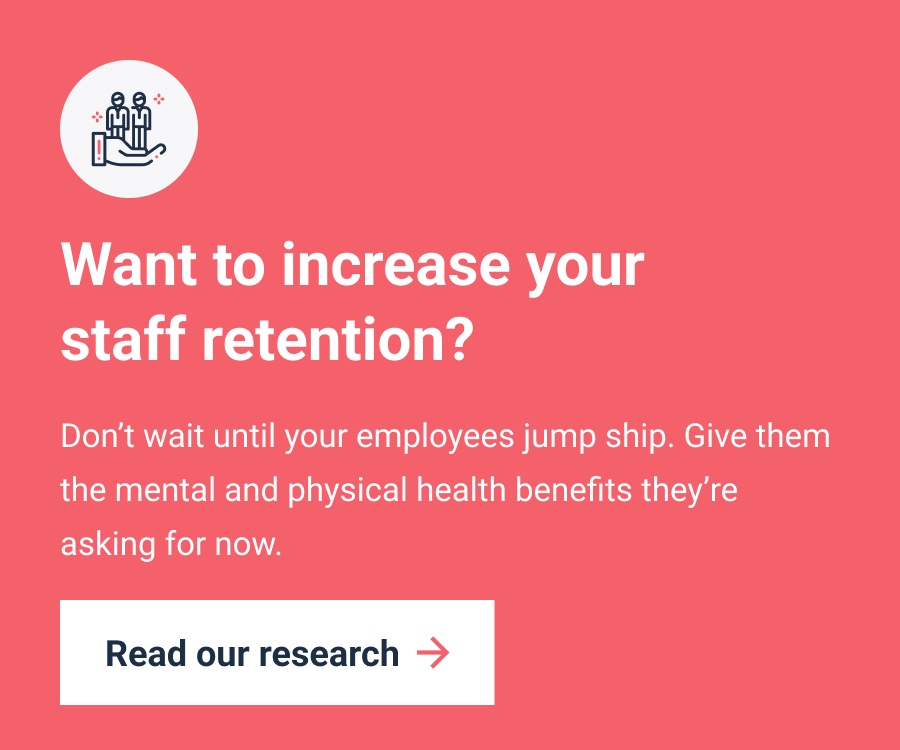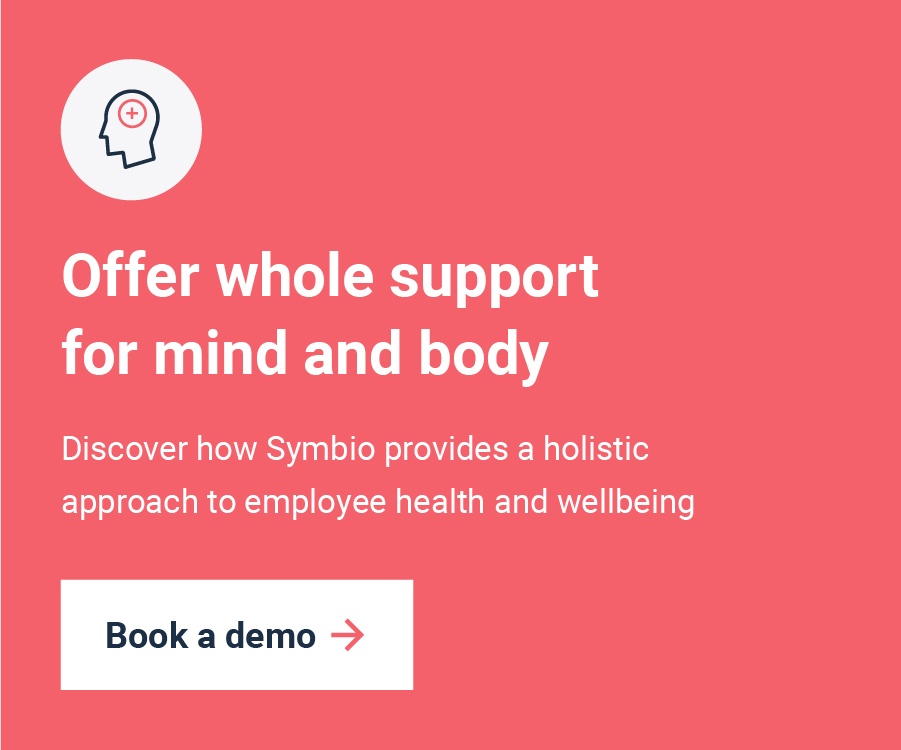There are many health issues particular to women. And here, we’re referring specifically to people assigned female at birth. There are gynaecological cancers and conditions. Then there’s menstruation and menopause – both of which can give rise to various issues.
Few people, in a biologically female body, go through life without facing a gynaecological issue. They’re common. Yet many people feel unable to talk about them.
We need to talk about women’s health in the workplace
81 percent of women feel their employer wouldn't make reasonable adjustments, if they spoke up about a women's health issue. 57 percent of people suffering from period-related health problems have lied to their manager about their reason for taking sick leave.
The lack of conversation about women’s health is a problem. Shrouding a topic in secrecy implies that it’s shameful, perpetuating stigma. If you can’t talk about your health, it’s harder to find out what’s typical. This makes it more challenging to notice, or act, when you have a problem. And being unable to talk about a problem can cause stress and anxiety.
This creates a workforce that’s less healthy, present and productive than they could be. And it leads to increased presenteeism and mental health-related sick leave.
The problem beyond the workplace
‘… women spend a significantly greater proportion of their lives in ill health and disability compared with men. Not enough focus is placed on women-specific issues like miscarriage or menopause, and women are under-represented when it comes to important clinical trials.’ Women’s Health Strategy for England, August 2022
A Government survey found that only 64 percent of women feel comfortable talking to professionals about menopause. 72 percent feel comfortable talking about gynaecological cancers. And 71 percent about gynaecological conditions in general. This tells us, over a quarter of women feel unable to talk to professionals about health concerns.
Only 54 percent of women consult the NHS about these concerns. The rest don’t go to their GP or ring the helpline. The majority turn instead to friends and family, or internet search engines.
So, the stigma surrounding women’s health isn’t limited to the workplace. But it is something that workplaces can’t afford to ignore.
What can employers do?
Today’s workforce wants an employer who cares about their wellbeing. In fact, health and wellbeing is one of the most important areas women consider, when looking for a job.
You can’t turn away from the issue of women’s wellbeing. And overcoming stigma is key to making progress in this challenging area. So, how do you go about that?
Discuss the topic openly
Lots of people don’t feel comfortable talking about women’s health. This is a self-perpetuating problem. If nobody talks about it, nobody feels comfortable raising the subject. You can break this cycle at work.
Consider women’s health when creating your wellbeing strategy. Design policies to support women at different times of life, like during pregnancy and perimenopause. Then integrate those policies into everyday working culture.
There’s a whole calendar of women’s health awareness dates. Endometriosis Month, Menopause Awareness Month and similar, are opportunities to start conversations. Use these events to show your workforce that women’s health issues are common. Then highlight the support that's available.
Normalise discussions about mental and physical wellbeing, in general. This creates a culture of openness and empathy. It makes it easier for people to open up about whatever they’re struggling with.
Line managers are your greatest resource here. They’re in a position to set an informal, supportive tone. And they can keep checking in with their team, even when everyone works from home.
Create safe environments for women to open up
As we’ve seen, many women prefer to talk to peers about their health. So, can you provide forums allowing them to do this? Peer support can improve people’s wellbeing, self-esteem and self-confidence.
Consider introducing a mentorship programme. Create women’s events and groups. Different environments will feel safer for different people. For most, talking to someone who understands will make it easier to share. This can reduce stigma, by showing women they’re not alone.
For those who need it, ensure access to health professionals is accessible. Health Hero’s digital wellbeing platform Symbio, makes this easy to do.
Symbio puts health and wellbeing into the palm of your hand. People can book sessions with a range of clinical specialists from their smartphone. No forms to complete. No uncomfortable conversations with their line manager. This holistic solution empowers teams to look after their own health. They can open up to qualified professionals online, from the privacy of home.
You can see take-up and usage data. So, you’ll watch a culture-shift take place, as your people take control of their wellbeing.
Provide accessible, clinically valid advice
Of course, you can’t make women open up if they don’t want to. But you can help them educate themselves from accurate, science-based sources.
Searching the internet for health information generates hit-and-miss, often scary results. On the other hand, Symbio has a huge library of digital resources, validated by medical professionals.
Using the app’s chatbot, people can ask for what they need. Symbio will deliver relevant, valuable content. Results include articles and self-guided therapeutic programmes, as well as professional support. If a person doesn’t feel able to open up, no problem. They can arm themselves with information and take steps to support their own health.
This could help to ease the burden of feeling alone with an issue. It also shows people their employer cares, by providing them with a choice of solutions.
Respect personal choice
Overcoming women’s health stigmas means acknowledging that different bodies have different needs. Your digital health solution should support those differences.
Our platform allows employees to perform self-assessments and tailor their areas of focus. Using regular wellbeing check-ins, they build a picture of their own needs. Then they build an experience that supports those needs, holistically.
Meet the challenge of women's health stigmas at work. Choose a solution that supports awareness, empathy and prevention, as well as cure.
Learn more about helping your workforce to open up.






